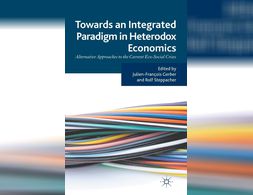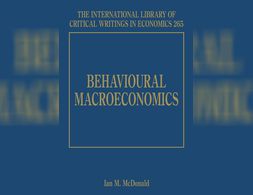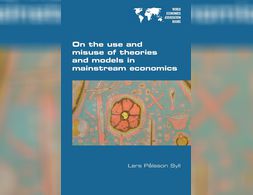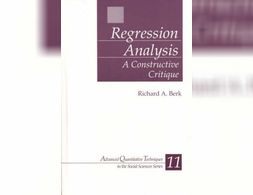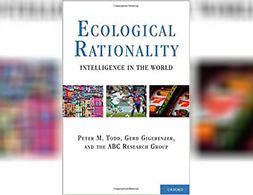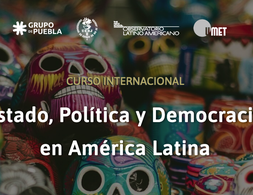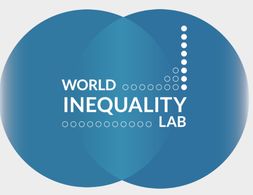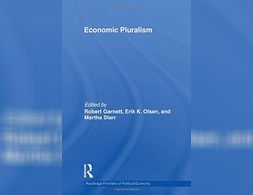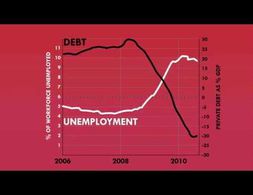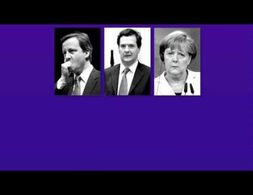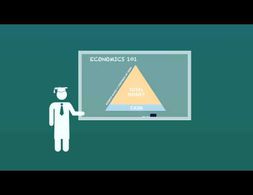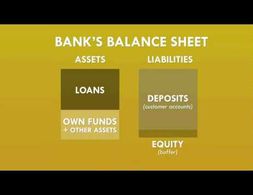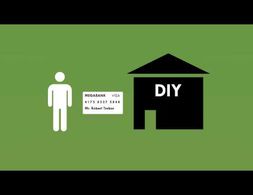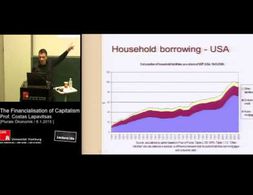✕
1198 results
Gender, Development, and Globalization is the leading primer on global feminist economics and development. Lourdes Benería, a pioneer in the field of feminist economics, is joined in this second edition by Gunseli Berik and Maria Floro to update the text to reflect the major theoretical, empirical, and methodological contributions and global developments in the last decade.
The human imprint on the biosphere has become so pronounced in recent years that there has been talk of a new geological era, the 'Anthropocene'.
This invaluable volume brings together seminal articles with a significant behavioural content on various areas in macroeconomics.
This collection of previously published and new papers is a major intervention in the on-going debate about the nature and future of economics. Instead of the present deductivist-formalist orientation of mainstream economics, Lars Syll advocates for the adoption of a more pluralist approach to economics, arguing for more realism and relevance with less insistence on mathematical modeling.
Regression Analysis: A Constructive Critique identifies a wide variety of problems with regression analysis as it is commonly used and then provides a number of ways in which practice could be improved.
Nature and communities in the global south is being overwhelmed at a shocking rate. In many places this is due to ventures such as large-scale open-pit mining, oil extraction in tropical areas, and the spread of monocultures. These and other such forms of natural resource appropriation are usually known as extractivisms.
Work defines who we are It determines our status and dictates how where and with whom we spend most of our time It mediates our self worth and molds our values But are we hard wired to work as hard as we do Did our Stone Age ancestors also live …
Modern Monetary Theory and the Birth of the People s Economy The leading thinker and most visible public advocate of modern monetary theory the freshest and most important idea about economics in decades delivers a radically different bold new understanding for how to build a just and prosperous society Stephanie …
The book explores the imperialist tendency inherent in global capitalism by using a rigorous political economy framework.
More-is-better ideals such as these have long shaped our vision of rationality. Yet humans and other animals typically rely on simple heuristics to solve adaptive problems, focusing on one or a few important cues and ignoring the rest, and shortcutting computation rather than striving for as much as possible.
This course will focus on the emergence and evolution of industrial societies around the world We will begin by comparing the legacies of industry in ancient and early modern Europe and Asia and examining the agricultural and commercial advances that laid the groundwork for the Industrial Revolution of the 18th …
Whiteness is a process of learning: one is not born white, but becomes one. In this rich and compelling volume, Sriprakash, Rudolph and Gerrard offer a meticulous (and eye-opening) reading of educational experiences and structures that endorse systemic racism.
This course is part of the SDG initiative addressing the UN Sustainable Development Goals, specifically for the following SDGs [1, 8, 10 and 16].
In Colonial Debts Rocío Zambrana develops the concept of neoliberal coloniality in light of Puerto Rico's debt crisis. Drawing on decolonial thought and praxis, Zambrana shows how debt functions as an apparatus of predation that transforms how neoliberalism operates.
Dani Rodrik reflects in this book on important questions about how economics works and what might be wrong with it. He points out flaws and weakness of the discipline, but also argues that certain criticisms which have brought forward against are without merit. His central point is that there is not just one economic model, but a variety of them and it is important to apply judgment when selecting the most suitable one for a particular situation.
El curso Estado Política y Democracia en América Latina es una iniciativa destinada a militantes y activistas sociales y toda persona interesada en los desafíos de la democracia en América Latina y el Caribe Está organizado por el Grupo de Puebla el Programa Latinoamericano de Extensión y Cultura de la …
Teaching and learning ontology and epistemology. Onto-what? Bates & Jenkins explain what is needed to equip students with the ability to critically reflect on learned content and understand meta-discussions in their field.
The World Inequality Lab gathers social scientists committed to helping everyone understand the drivers of inequality worldwide through evidence based research The World Inequality Lab hosts the World Inequality Database the most extensive public database on global inequality dynamics Their main missions are The extension of the World Inequality Database …
This report to the DEFRA summarizes the main approaches, opportunities and difficulties that come with individual carbon trading.
The course approaches migration as a constant phenomenon in human history and examines its main supporting theories It illustrates theories about people s individual decisions to migrate and also the factors of migration as a structural feature of our societies It explains the role social networks and institutions play in …
This lecture offers a general and introductory overview of the theory of racial capitalism, focusing on the origins of racial capitalism and some of the debates it has generated.
The leading edges of economic thinking in the early 21st century are marked by a nascent pluralism - a positive valuing of difference and complexity - regarding the nature and evolution of human behaviour and economic organization. Economic Pluralism brings these pluralist sensibilities to the fore.
Banking 101 is a series of 6 short videos that ask the following questions: How do banks work and how is money created? Is reveals common misunderstandings of money creation and the role of banks. Furthermore, the videos show how models taught in many introductory classes to economics (Econ 101) do not reflect those processes:
Part 1) “Misconceptions around Banking” questions common comprehensions of how banks work (savings = investments).
Part 2) “What's wrong with the money multiplier” states that the model of the money multiplies is inaccurate.
Part 3) “How is money really made by banks” explains the process of money creation, loans and inter-bank settlement.
Part 4) “How much money banks create?” asks what limits the money creation by banks and presents the difference between reserve ratio, liquidity ration, equity and refers to the inter-bank market.
Part 5) Explores the question if banks create money or just credit and especially refers to credit risks.
Part 6) Explains how money gets destroyed when loans are paid back.
Note: The videos refer to the UK monetary and banking system, some explanations don't apply to other banking systems, e.g. the reserve ratio.
Banking 101 is a series of 6 short videos that ask the following questions: How do banks work and how is money created? Is reveals common misunderstandings of money creation and the role of banks. Furthermore, the videos show how models taught in many introductory classes to economics (Econ 101) do not reflect those processes:
Part 1) “Misconceptions around Banking” questions common comprehensions of how banks work (savings = investments).
Part 2) “What's wrong with the money multiplier” states that the model of the money multiplies is inaccurate.
Part 3) “How is money really made by banks” explains the process of money creation, loans and inter-bank settlement.
Part 4) “How much money banks create?” asks what limits the money creation by banks and presents the difference between reserve ratio, liquidity ration, equity and refers to the inter-bank market.
Part 5) Explores the question if banks create money or just credit and especially refers to credit risks.
Part 6) Explains how money gets destroyed when loans are paid back.
Note: The videos refer to the UK monetary and banking system, some explanations don't apply to other banking systems, e.g. the reserve ratio.
Banking 101 is a series of 6 short videos that ask the following questions: How do banks work and how is money created? Is reveals common misunderstandings of money creation and the role of banks. Furthermore, the videos show how models taught in many introductory classes to economics (Econ 101) do not reflect those processes:
Part 1) “Misconceptions around Banking” questions common comprehensions of how banks work (savings = investments).
Part 2) “What's wrong with the money multiplier” states that the model of the money multiplies is inaccurate.
Part 3) “How is money really made by banks” explains the process of money creation, loans and inter-bank settlement.
Part 4) “How much money banks create?” asks what limits the money creation by banks and presents the difference between reserve ratio, liquidity ration, equity and refers to the inter-bank market.
Part 5) Explores the question if banks create money or just credit and especially refers to credit risks.
Part 6) Explains how money gets destroyed when loans are paid back.
Note: The videos refer to the UK monetary and banking system, some explanations don't apply to other banking systems, e.g. the reserve ratio.
Banking 101 is a series of 6 short videos that ask the following questions: How do banks work and how is money created? Is reveals common misunderstandings of money creation and the role of banks. Furthermore, the videos show how models taught in many introductory classes to economics (Econ 101) do not reflect those processes:
Part 1) “Misconceptions around Banking” questions common comprehensions of how banks work (savings = investments).
Part 2) “What's wrong with the money multiplier” states that the model of the money multiplies is inaccurate.
Part 3) “How is money really made by banks” explains the process of money creation, loans and inter-bank settlement.
Part 4) “How much money banks create?” asks what limits the money creation by banks and presents the difference between reserve ratio, liquidity ration, equity and refers to the inter-bank market.
Part 5) Explores the question if banks create money or just credit and especially refers to credit risks.
Part 6) Explains how money gets destroyed when loans are paid back.
Note: The videos refer to the UK monetary and banking system, some explanations don't apply to other banking systems, e.g. the reserve ratio.
Banking 101 is a series of 6 short videos that ask the following questions: How do banks work and how is money created? Is reveals common misunderstandings of money creation and the role of banks. Furthermore, the videos show how models taught in many introductory classes to economics (Econ 101) do not reflect those processes:
Part 1) “Misconceptions around Banking” questions common comprehensions of how banks work (savings = investments).
Part 2) “What's wrong with the money multiplier” states that the model of the money multiplies is inaccurate.
Part 3) “How is money really made by banks” explains the process of money creation, loans and inter-bank settlement.
Part 4) “How much money banks create?” asks what limits the money creation by banks and presents the difference between reserve ratio, liquidity ration, equity and refers to the inter-bank market.
Part 5) Explores the question if banks create money or just credit and especially refers to credit risks.
Part 6) Explains how money gets destroyed when loans are paid back.
Note: The videos refer to the UK monetary and banking system, some explanations don't apply to other banking systems, e.g. the reserve ratio.
MERCOSUR (Mercado Común del Sur or Common Southern Market) was the first formalized attempt to integrate South American countries economically and politically.
Banking 101 is a series of 6 short videos that ask the following questions: How do banks work and how is money created? Is reveals common misunderstandings of money creation and the role of banks. Furthermore, the videos show how models taught in many introductory classes to economics (Econ 101) do not reflect those processes:
Part 1) “Misconceptions around Banking” questions common comprehensions of how banks work (savings = investments).
Part 2) “What's wrong with the money multiplier” states that the model of the money multiplies is inaccurate.
Part 3) “How is money really made by banks” explains the process of money creation, loans and inter-bank settlement.
Part 4) “How much money banks create?” asks what limits the money creation by banks and presents the difference between reserve ratio, liquidity ration, equity and refers to the inter-bank market.
Part 5) Explores the question if banks create money or just credit and especially refers to credit risks.
Part 6) Explains how money gets destroyed when loans are paid back.
Note: The videos refer to the UK monetary and banking system, some explanations don't apply to other banking systems, e.g. the reserve ratio.
Economist and politician Costas Lapavitsas: presents differing theoretical definitions of financialization, namely from Marxist and Post-Keynesian thinkers and compares their approaches. By presenting pattern and features of the economic and financial crisis, he interprets the latter as a crisis of financialization. Lapavitsas emphasizes his arguments by presenting data from the U.S. and Germany on the transformation of business, banks and households.
Jens Beckert and Richard Bronk, authors of "Uncertain Times", explore the extent to which flaws, blind spots and more importantly bias created by macroeconomics models, based on forecasts and statistical devices, shape crisis and the market economy in which we live.
What causes a recession? Told by economic historian John S. Gordon and visualized by a dancing performance, this short film focuses on emotions that are linked to recessions and recovery: fear and confidence.
Necesitamos cookies. Pincha en “Aceptar” para ayudarnos a hacer de Exploring Economics una mejor plataforma.


